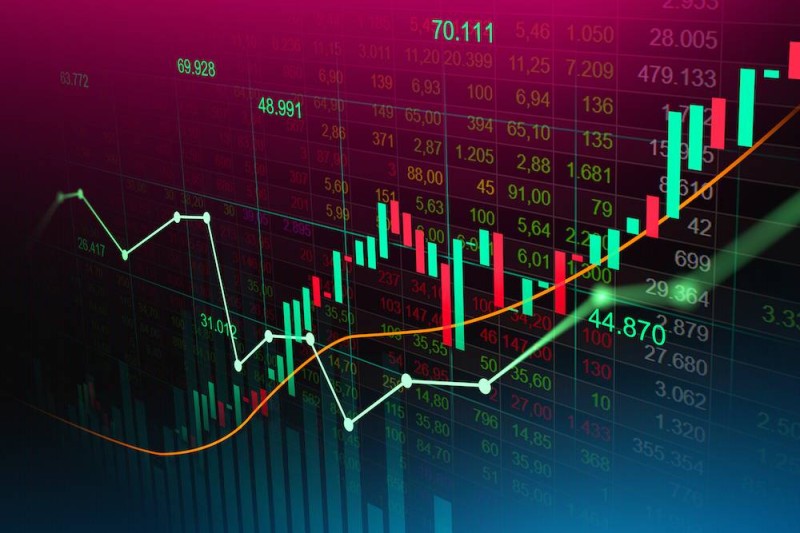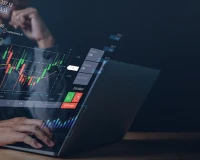-Introduction:
Forex trading (foreign exchange market) is one of the most liquid and actively traded financial markets in the world, where currencies are exchanged between banks, companies, governments, and individual investors. In this article, we will cover the basics of forex trading in a simplified manner, along with a guide for beginners to achieve success in this vast market

-What is the Forex Market?
The forex market is a decentralized market where currencies are exchanged online between buyers and sellers. Forex is typically traded in currency pairs, such as Euro/Dollar (EUR/USD) or British Pound/US Dollar (GBP/USD). The value of each currency in a pair depends on the economic and financial strength of the country it represents.
- Understanding Currency Pairs and Their Types:
The basics of forex trading involve understanding the different currency pairs. Currency pairs are divided into three main types:
Major Pairs: These include currencies representing strong economies, such as Euro/US Dollar (EUR/USD) and US Dollar/Japanese Yen (USD/JPY).
Minor Pairs: These are currency pairs that do not include the US Dollar, such as Euro/British Pound (EUR/GBP).
Exotic Pairs: These include currency pairs involving currencies from emerging economies, such as British Pound/Russian Ruble (GBP/RUB)
-Understanding Leverage:
Leverage is an important tool in forex trading, allowing traders to control larger positions compared to their actual capital. For example, if you use a leverage of 100:1, you can control a $100,000 position with only $1,000. However, caution should be exercised when using leverage because it increases risk and can lead to significant losses if not used carefully.
- Reading Charts and Market Analysis:
To be successful in forex trading, you must master reading charts and market analysis. Technical and fundamental analysis are used to determine potential market trends.
Technical Analysis: This involves studying historical price movements using charts and technical indicators like Moving Averages (MA), Relative Strength Index (RSI), and more.
Fundamental Analysis: This focuses on analyzing economic factors that affect currencies, such as unemployment data, inflation, central bank monetary policies, and geopolitical events

-Risk Management:
Risk management is one of the most important factors in forex trading. In this volatile market, reckless decisions can lead to significant losses. Therefore, you should:
Determine Lot Size: Set the size of your trades based on available capital and the level of risk you're willing to take.
Use Stop-Loss Orders: This tool allows you to set the maximum loss you are willing to accept, helping to reduce risk.
Manage Emotions: Do not let emotions such as greed or fear control your decisions. Staying calm and making logical decisions is key to success
-Choosing the Right Forex Broker:
The broker is the bridge between you and the forex market. You should choose a reliable and licensed broker with a good reputation in the market. Some points to consider when selecting a broker:
Regulation and Licensing: Ensure the broker is licensed by a trusted regulatory body, such as the Financial Conduct Authority (FCA) or the U.S. Securities and Exchange Commission (SEC).
Spreads and Commissions: Prefer a broker that offers low spreads and reasonable trading fees.
Trading Platform: Check that the broker provides an easy-to-use trading platform that supports effective analysis tools

-Continuous Learning and Development:
The forex markets are constantly changing, so traders need to learn new strategies and stay updated with market news. Beginner traders can start with a demo account to try out different strategies without financial risk. Additionally, reading specialized books, joining trader forums, and following expert analysts can help improve your skills
Create a Clear Trading Plan:
One of the most important tips for success in forex is to create a defined trading plan that you stick to. This plan should include:
Your Financial Goals: Set a clear goal for your forex trading, whether it's generating extra income or achieving long-term growth.
Trading Strategy: Define the strategies you will rely on, whether they are price fluctuation strategies or trend-following strategies.
Risk Control: Determine the maximum loss you are willing to bear on a daily or monthly basis

-Conclusion:
Forex trading can be a challenging path, but it is also a great opportunity for profit if approached with care and professionalism. By following the tips mentioned, understanding the basics of the market, and managing risks wisely, you can be on your way to success in the forex market. Remember that continuous learning and discipline are the key factors to achieving outstanding results in this exciting market.










